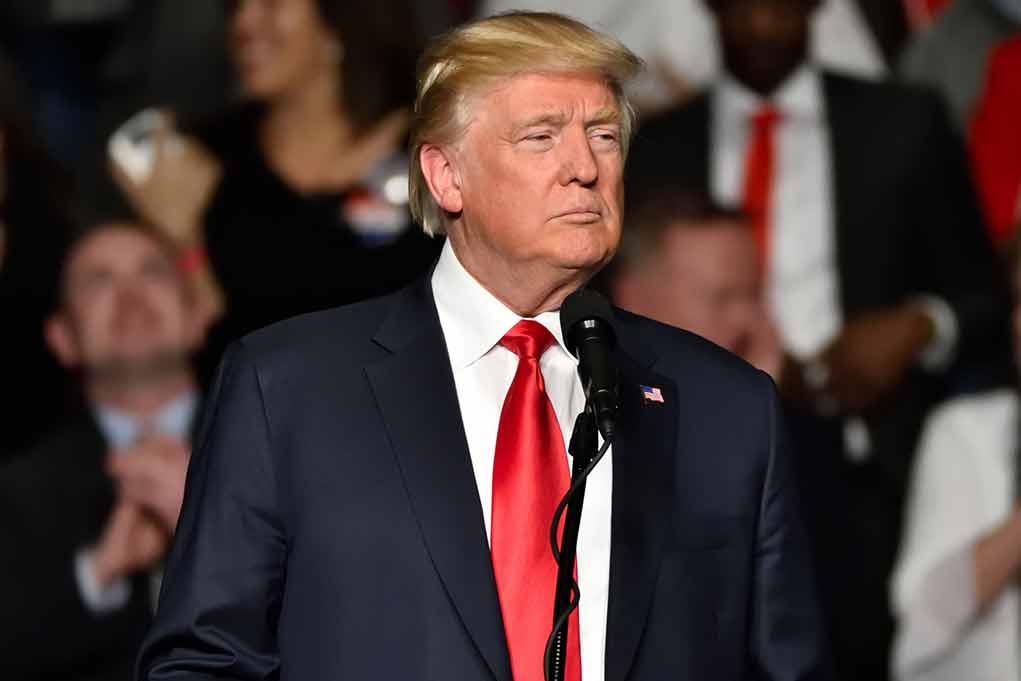
President Trump pardons 1,500 January 6 defendants, igniting fiery debate over justice and reconciliation.
Key Takeaways
- Trump pardoned approximately 1,500 non-violent individuals charged in connection with the January 6 Capitol breach.
- Sentences were commuted for those still serving time, including leaders of the Proud Boys and Oath Keepers.
- Trump described the pardoned individuals as “J6 hostages” who were unjustly prosecuted.
- The move has sparked controversy, with 64% of Americans opposing pardons for January 6 defendants.
- Trump’s administration emphasized a focus on non-violent offenders, maintaining accountability for violent acts.
Trump’s Bold Move: Pardons and Commutations for January 6 Defendants
In a sweeping act of presidential clemency, Donald Trump has pardoned approximately 1,500 individuals charged and convicted in connection with the January 6, 2021, U.S. Capitol breach. This controversial decision has sent shockwaves through the political landscape, reigniting debates about justice, accountability, and national reconciliation.
Trump’s actions extend beyond pardons, as he has also commuted sentences for those still serving time related to the January 6 events. Notably, this includes high-profile figures such as Enrique Tarrio, leader of the Proud Boys, and Stewart Rhodes, founder of the Oath Keepers, whose sentences were commuted to time served.
“J6 Hostages” and the Quest for Justice
Throughout his campaign and presidency, Trump has consistently referred to those charged in connection with January 6 as “hostages” who have been unjustly prosecuted. This rhetoric has resonated strongly with his base, who view the legal actions against January 6 participants as politically motivated.
“What they’ve done to these people is outrageous” – Trump
The presidential proclamation accompanying these pardons frames the action as ending “a grave national injustice” and initiating a process of national reconciliation. However, this perspective is far from universally shared, with a Scripps News/Ipsos poll showing that 64% of respondents opposed pardoning January 6 defendants.
Nuanced Approach: Distinguishing Between Non-Violent and Violent Offenders
Trump’s administration has emphasized a focus on non-violent offenders in this clemency initiative. Vice President-elect JD Vance and Attorney General pick Pam Bondi have expressed reservations about pardoning those who committed violence on January 6. This nuanced approach aims to address perceived injustices while maintaining accountability for more serious offenses.
“If they were non-violent, I think they’ve been greatly punished. They’ve suffered greatly, and in many cases, they should not have suffered.” – President Donald Trump
It’s important to note that over 1,500 people have been charged with federal crimes related to the insurrection, with more than 900 convictions. Charges have included destruction of government property, assault, and seditious conspiracy, with over 160 individuals charged with using a deadly weapon or causing serious injury to an officer.
Political Implications and Public Response
The decision to pardon January 6 defendants has significant political implications. While it has been met with enthusiasm by Trump’s base, it has also faced strong opposition from Democrats and many Independents. The move is likely to further polarize an already divided electorate as the country moves towards the next presidential election.
Just hours after being inaugurated, President Donald Trump officially pardoned about 1,500 of those charged and convicted of offenses related to the Jan. 6, 2021, U.S. Capitol insurrection and commuted the sentences of 14 others. https://t.co/jPtT0WPba6
— ABC Action News (@abcactionnews) January 21, 2025
Interestingly, some January 6 participants, like Brandon Fellows, have expressed uncertainty about accepting a pardon. Fellows stated, “I don’t want to admit guilt because I didn’t know I was breaking the law. They told me I wasn’t. So, as cool as having a presidential pardon would be, I’ve been increasingly in the past week thinking, yeah, I’m not gonna put in for that.”
Looking Ahead: The Impact on American Politics
As the dust settles on this controversial decision, the long-term impacts on American politics remain to be seen. Will this move help heal the divisions in the country, as Trump claims, or will it further entrench partisan animosities? The answer likely depends on one’s political perspective, but what’s certain is that the January 6 Capitol breach and its aftermath will continue to be a defining issue in American politics for years to come.
“You’re going to see a lot of action on the J6 hostages.” – President Donald Trump
As the nation grapples with the implications of these pardons, it’s clear that the debate over justice, accountability, and national unity is far from over. The coming months and years will reveal whether this bold move by President Trump will be seen as a step towards healing or a deepening of America’s political divide.
Sources:
- Trump pardons nearly all Jan. 6 rioters on first day of presidency
- President Trump pardons about 1,500 Jan. 6 defendants, commutes sentences for 14 others
- Trump Pardons 1,500 Jan. 6 Defendants, Commutes 14 Sentences | The Epoch Times

